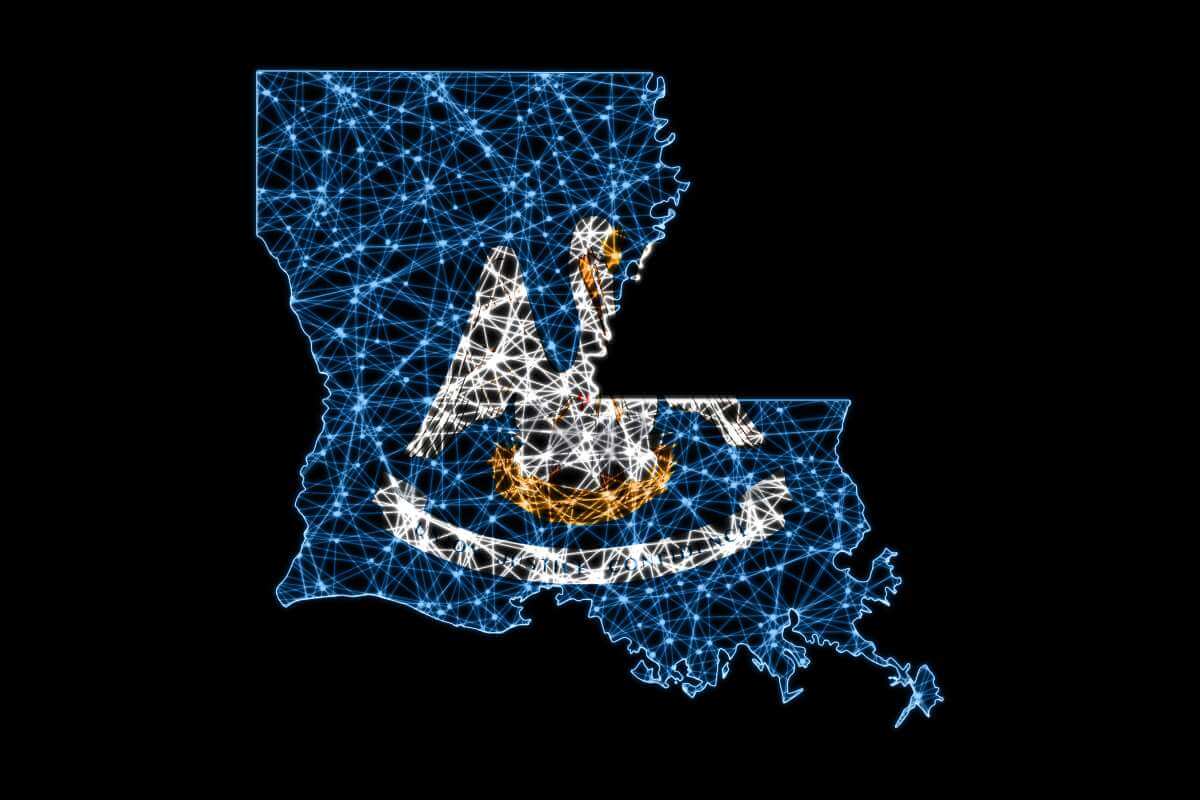Louisiana's Broadband Gumbo Grants Round II - NTIA's BEAD Fund
- by ISPadmin
- 2024 / 05 / 14
- Raising Capital


The National Telecommunications and Information Administration (NTIA) has approved Louisiana’s Initial Proposal for the Broadband Equity, Access, and Deployment (BEAD) program, marking a significant milestone in the Biden-Harris Administration’s “Internet for All” initiative. Louisiana is now poised to move from planning to implementing the BEAD program, a crucial step towards bridging the digital divide in the state and achieving the goal of universal, affordable, high-speed internet access.
“President Biden has emphasized the necessity of high-quality, affordable internet for all Americans to fully engage in the modern economy,” said U.S. Secretary of Commerce Gina Raimondo. “Louisiana’s progress today is a major step toward ensuring no one is left behind. I applaud Governor Edwards and the ConnectLA team for their accomplishment, which benefits Louisiana’s workers, businesses, communities, and families.”
The BEAD program, part of the $42.45 billion state grant initiative under President Biden’s Bipartisan Infrastructure Law, aims to deploy or upgrade broadband networks, ensuring reliable, high-speed internet access for all. Post-deployment, remaining funds can support internet adoption, training, and workforce development efforts.
“The internet is indispensable in today’s world. Louisiana is now closer to providing affordable, reliable, high-speed internet to everyone,” said NTIA Administrator Alan Davidson. “Congratulations to the ConnectLA team for their high-quality plan that focuses on job creation and resilient network building, which will benefit the state for years.”
Eligible entities—56 states, territories, and the District of Columbia—must submit Initial Proposals to the NTIA detailing how they plan to use their BEAD funds to deliver high-speed internet to all unserved and underserved areas. All states must submit their proposals by December 27, 2023. NTIA provides weekly updates on the status of these proposals here.
“Under President Biden’s Investing in America agenda, we’ve made a historic $90 billion investment to provide affordable, reliable high-speed internet across America,” said Mitch Landrieu, Senior Advisor to the President and White House Infrastructure Coordinator. “This announcement for Louisiana is a milestone in closing the digital divide and ensuring all residents have high-speed internet. President Biden is delivering unprecedented support to Louisiana and the nation.”
“Thanks to the BEAD program, states like Louisiana now have the tools to ensure every household and small business has access to affordable high-speed internet,” said National Economic Advisor Lael Brainard. “Congratulations to NTIA and Governor Edwards for this significant achievement.”
BEAD-eligible entities can submit their Initial Proposals in two volumes. Volume I outlines the state’s challenge process for local governments, nonprofits, or broadband service providers to contest location eligibility for BEAD funding. Volume II covers the remaining aspects of the state’s implementation plan, as detailed in the BEAD Notice of Funding Opportunity.
“I thank the Biden-Harris administration for the Bipartisan Infrastructure Law that enabled this progress, along with Senator Bill Cassidy and Congressman Troy Carter,” said Governor John Bel Edwards. “This announcement underscores our commitment to ensuring every Louisianan has access to reliable high-speed internet. Our plan focuses on resilience, connectivity, and affordability, with projects set to begin next year. Additionally, our partnership with the Louisiana Community and Technical College System will develop a skilled workforce for upcoming infrastructure jobs.”
Louisiana plans to complete its BEAD challenge process by December. A year after the Initial Proposal’s approval, the state must submit a Final Proposal detailing the subgrantee selection process outcomes and ensuring service to all unserved and
underserved areas.
“This is a monumental achievement highlighting Louisiana’s commitment to internet equity. As the first state authorized to access BEAD funds, we are leading efforts to close the digital divide, ensuring all citizens have affordable, reliable broadband,” said Rep. Troy Carter. “Louisiana sets an example for utilizing BEAD funds to bridge technological disparities, fostering a more inclusive and connected society.”
How WISPs and ISPs Can Leverage BEAD Funds
The approval of Louisiana’s Initial Proposal for the BEAD program presents a unique opportunity for Wireless Internet Service Providers (WISPs) and Internet Service Providers (ISPs) to expand their services and reach underserved communities. Here’s how WISPs and ISPs can take advantage of the program and its funds:
1. Participate in State Challenge Processes
- Engage Early: Stay informed about your state’s challenge process and participate actively. This process allows you to contest the eligibility of certain locations, ensuring the funds are allocated where they are needed most.
- Data Submission: Provide accurate and comprehensive data to support your claims during the challenge process. Demonstrating current service levels and infrastructure capabilities can help secure funding for targeted areas.
2. Develop Strategic Partnerships
- Collaborate with Local Governments: Partner with local municipalities and community organizations to strengthen your proposals. These partnerships can enhance your credibility and provide additional resources.
- Join Forces with Educational Institutions: Work with local schools and technical colleges to develop training programs that build a skilled workforce for network deployment and maintenance.
3. Create Robust Implementation Plans
- Detailed Proposals: Craft detailed implementation plans that highlight your ability to deploy high-speed broadband efficiently. Include timelines, cost estimates, and technological solutions tailored to the specific needs of the target areas.
- Innovative Solutions: Leverage the latest technologies such as fixed wireless, fiber optics, and satellite broadband to offer scalable and resilient internet services.
4. Focus on Digital Inclusion
- Adoption Programs: Use part of the BEAD funds to develop programs that encourage internet adoption among underserved populations. This could include digital literacy training, affordable service plans, and community outreach.
- Workforce Development: Invest in training and certification programs to build a local workforce capable of supporting broadband expansion efforts. This not only aids deployment but also boosts local economies.
5. Leverage Additional Funding Opportunities
- Combine Resources: Look for ways to combine BEAD funds with other federal, state, and local funding opportunities to maximize your impact. Programs like the Federal Communications Commission’s Affordable Connectivity Program (ACP) can complement BEAD initiatives by making internet access more affordable.
Conclusion
The BEAD program represents a transformative opportunity for WISPs and ISPs to expand their reach and impact in underserved areas. By actively engaging in the process, forming strategic partnerships, and focusing on innovative and inclusive solutions, service providers can play a crucial role in closing the digital divide. Louisiana’s milestone is just the beginning, and the collective efforts of WISPs, ISPs, and state governments will ensure that affordable, high-speed internet becomes a reality for all Americans.
Internet for All
The Bipartisan Infrastructure Law includes a historic $65 billion investment to expand affordable and reliable high-speed internet access in communities across the U.S. NTIA recently launched a series of new high-speed internet grant programs funded by the law that will build high-speed internet infrastructure across the country, create more low-cost high-speed internet service options, and address the digital equity and inclusion needs in our communities.
The Federal Communications Commission’s Affordable Connectivity Program (ACP) provides a discount of up to $30 per month toward internet service for eligible households and up to $75 per month for households on qualifying Tribal lands. Visit AffordableConnectivity.gov to learn more.
For more information on the Biden-Harris Administration’s high-speed internet service programs, please visit InternetforAll.gov.
About the NTIA
The National Telecommunications and Information Administration (NTIA), part of the U.S. Department of Commerce, advises the President on telecommunications and information policy issues. NTIA’s programs focus on expanding broadband access and adoption, optimizing spectrum use, enhancing public safety communications, and ensuring the internet drives innovation and economic growth.
Contact us here to learn more about how ISP Revolution can help you deploy with confidence – the first time
RECENT BLOG
December 03, 2024
November 07, 2024
October 08, 2024
July 23, 2024
MORE INFO
ISP Resolution © 2024 All Rights Reserved
